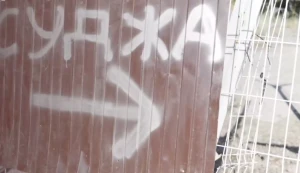
We have no history of independent living to draw from
The history of the former Soviet republics closely mirrors the old English fairy tale about the three little pigs, each building their houses from different materials
The Baltic states, for example, managed to build themselves strong, stone houses, seeking protection under the umbrella of powerful nations, and thus feeling secure. Belarus, however, didn’t build a house at all. Ukraine, on the other hand, built a house of twigs, hoping it would be enough. But it didn’t work out.
When the Soviet Union collapsed, Russia played a game of hide-and-seek with the former republics, counting to five with its eyes closed. Whoever didn’t hide, it’s not my fault.
In reality, the only true form of victory that can be honestly labeled as such is Russia’s non-aggression. Preventing a war is an absolute, undeniable victory. Everything else is merely an option for how the war might end - better or worse.
We should avoid falling into the trap of victim blaming, because, in addition to responsibility for the attack, there is also responsibility for defense. And that responsibility is collective, not just on the government. We lock our doors when we leave for work, even though no one has the right to enter our homes and take our TVs or hidden dollars. It’s natural to care about our safety. This is simply how the world works.
What’s noteworthy is that the Baltic states, which managed to take shelter under the NATO umbrella, faced roughly the same initial challenges as we did. The same Russians, the same Russian language. In fact, Estonia plans to phase out teaching Russian in schools by 2035, because the proportion of Russian-speaking Estonians is too high. And here’s the point: it’s not the language that matters, but who speaks it.
But I don’t blame Ukrainians, because, in truth, we’ve achieved more than we could have expected. Unlike the Baltic states, we didn’t have a history of independent living to draw from. Our "restoration of independence in 1991" sounds nice, but those brief periods of independence in the past didn’t solve anything, and Ukrainians didn’t have the chance to build experience in self-governance during those times.
The west and east of Ukraine grew up under completely different empires - that’s our problem. It’s not even like twin babies separated at birth, it’s something far worse. It’s hard to remember when the East and West truly saw each other as fellow citizens, as people living in the same country. It sounds almost tragicomic, but the brothers only met in a Soviet prison after 1945, and it’s even embarrassing to think about what Galicians who traveled to the east of Ukraine, or vice versa, must have felt.
It’s strange to think about, but it was only the full-scale war that really brought Ukrainians together on a mass scale. The Galicians got to experience the beauty of the steppes, while the people of Naddniprianshchyna saw the coziness of Galicia. Of course, it wasn’t an ideal process, as internal xenophobia existed, and certain groups quickly began pushing the narrative of “non-Ukrainian speakers waiting for Russia” and “Galician speculators,” with the less discerning picking up these ideas on social media.
But now it’s as clear as day: we can only move forward together, and we need to build partnerships to do so. Galicia, despite all its charm, traditions, and the Ukrainian language, can never fulfill the role of all of Ukraine. And Naddniprianshchyna, without Galicia, will quickly turn back into the Ukrainian SSR. You have to learn to accept the differences of other Ukrainians, because their historical backgrounds are different from yours. But always remember that they didn’t choose it. The empires of the past made those choices for us, no matter where we live in Ukraine today.
This intersection of two halves of Ukraine’s past doesn’t have to be a bitter scar - it can be something more elegant and unifying. Like a vase restored with gold at the end of the century (sorry, the pretentious aesthete in me had to throw in that metaphor).
We need to develop a collective mindset of understanding, empathy, and cooperation. Otherwise, we’ll be stuck endlessly searching for those physically capable of going to the front.
About the author: Volodymyr Hevko, marketer, blogger.
The editors don't always share the opinions expressed by the authors of the blogs.
- News












































